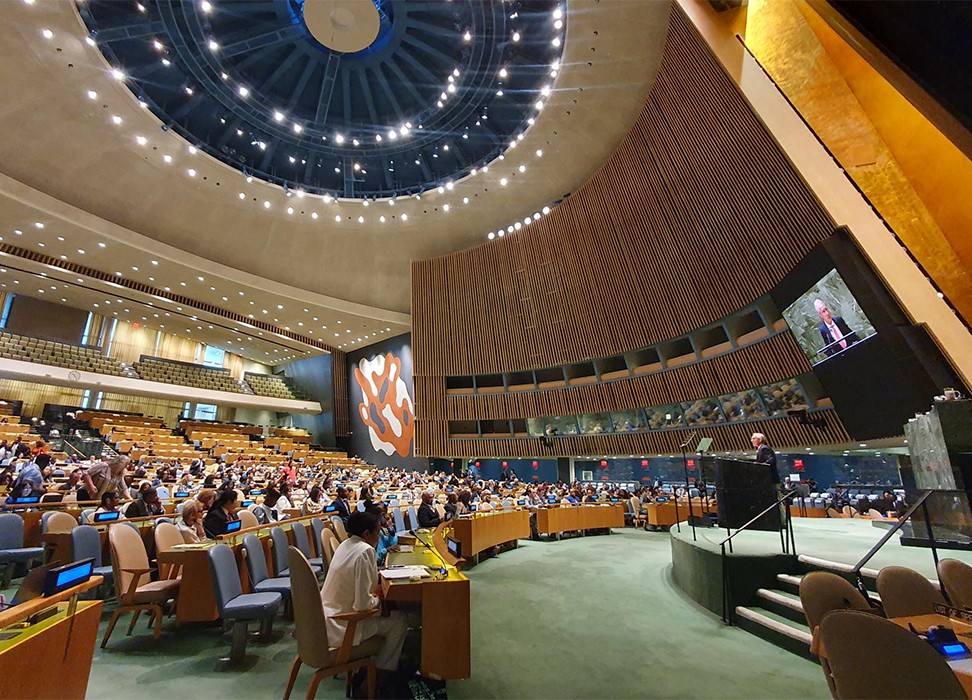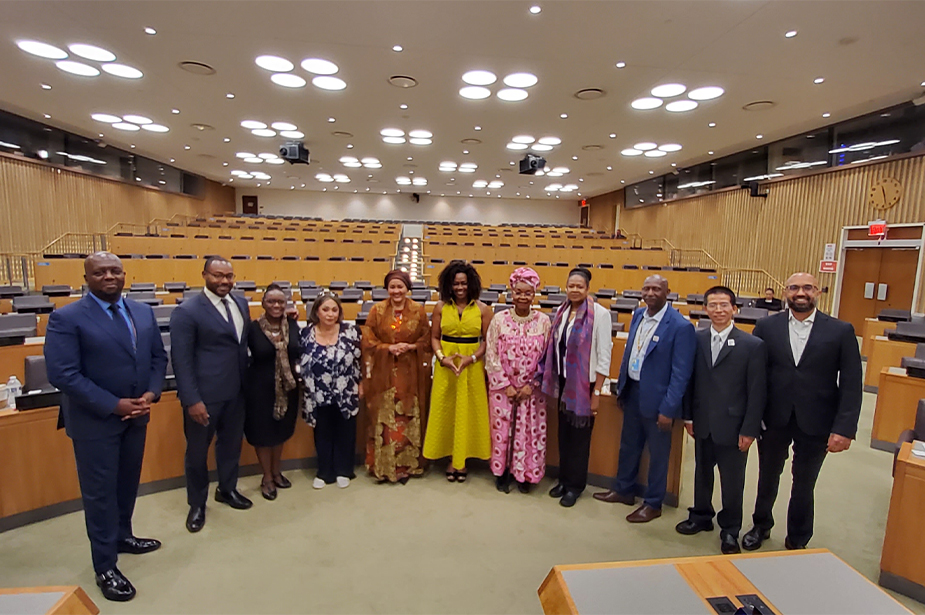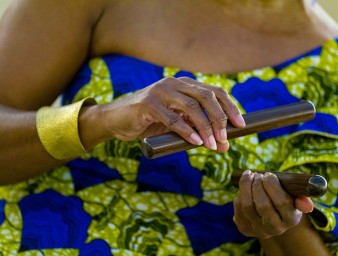Making concrete moves to end racism globally

Global reparatory justice, Pan-Africanism, dignity, justice, peace, migration, systemic and structural racism, access to health, and intergenerational trauma are some of the topics addressed by the UN Permanent Forum on People of African Descent.
According to Gaynel Curry, a member of the Permanent Forum and Bahamas national, it is a space imagined, demanded, and created by people of African descent for people of African descent.
“The Forum allows people of African descent to have a dialogue, to see where we are, to understand the challenges and appreciate what more needs to be done and in which areas,” she said. “I think the Forum itself is already an opportunity for us to think about how we can concretely respond.”
Pastor Murillo, a member of the Forum and Colombian national, believes that the symbolic impact of the Forum has already been substantial.
“For the first time after Durban, people of African descent have entered the United Nations and manifested their opinions massively,” he said. “For the delegations to find the African diaspora at its best was impressive, there were representatives from more than 155 countries. We are now more visible, before we were in the shadows.”
When the General Assembly adopted its resolution 75/314 in 2021, the Permanent Forum became a reality. The Forum is a consultative mechanism for people of African descent and a platform for improving their safety and quality of life and livelihoods, as well as an advisory body to the Human Rights Council, in line with the programme of activities for the implementation of the International Decade for People of African Descent and in close coordination with other existing mechanisms.
This past July, one of the key recommendations issued by the Permanent Forum is a call to Member States to proclaim a Second International Decade for People of African Descent. This International Decade would focus on reparatory justice, recognition, equity, and address systemic racism and structural racial discrimination at the local, national, regional, and global levels. This conclusion was highlighted because research, education, and public awareness raising on the histories and legacies of colonialism and enslavement of Africans and people of African descent are key to advance racial equity.
There was also a recommendation to create a specialised International Tribunal within the UN to deal with reparations for slavery, apartheid, genocide, and colonialism.

The members of the Permanent Forum on People of African Descent during the 2nd session at the UN in New York, 2023 © OHCHR
Shaping a Declaration
One of the tasks of the Forum is drafting and contributing to the process of a United Nations Declaration on the promotion, protection, and full respect of the human rights of people of African descent. The Declaration will bring together an extensive series of topics that affect the rights of people of African descent, some of them quite cutting edge, such as the disruptive impacts of artificial intelligence.
For Curry, the Declaration is an opportunity to push States to take concrete actions on racism and racial discrimination.
“[The Declaration is] an opportunity to really pull in some concrete actions that we think need to be done at the national level, at the global level, for that matter, to effectively respond to racial discrimination and to seek to end racism,” Curry said.
Addressing privilege
The Permanent Forum also recognized that people of African descent face multiple forms of discrimination on the basis of race, gender, class, national or ethnic origin, religion, etc. This is why the fight against racism and racial discrimination needs to address privilege even within the existing diversity amongst people of African descent, according to Curry.
“I am a Black woman from the Caribbean with a certain level of education that separates me from other women that may not have that education,” she said.
“
“It is incumbent upon us to identify those areas where there are multiple forms of discriminations and where we need to be looking at the intersections where people fall through the cracks.”
“
Gaynel Curry, Forum member and professor
The recent series of racist attacks against footballer Vinícius José Paixão de Oliveira Júnior, known as Vini Jr., from Real Madrid Football Club during a match are a clear example of when an individual case reflects the systemic issues of racial discrimination, said Murillo. During a recent football match, racist insults targeted Vini Jr., which sparked outrage among the public, the club and FIFA, and brought to the forefront issues of racism and racial discrimination faced by footballers of African descent, particularly in Europe. The racist attacks highlighted the continued problem of wider systemic racism, Murillo said.
“It is indisputable that the manifestation of racism to which me or any person of African descent may be subjected is so because we belong to a collective that has been historically and structurally victims of racial discrimination through actions that are aimed at impacting the collective as a whole and through actions that are aimed at a particular individual,” Murillo said.
There is also a discrepancy between the adoption of anti-discriminatory laws and the reality of their implementation, said Curry.
“Many countries have perfect laws, but in practice there is a challenge and there is pushback when it comes to effective implementation, and that comes from the mindset of the individuals in the country and the systemic, structural racism that persist,” she said.
Education and information about the change in policies, particularly addressed to people who are going to benefit from these changes, are key, Curry added. The Office launched its “Learn, Speak Up, Act!” Campaign to do just that by offering tools to promote concrete actions towards ending racism and racial discrimination.
Murillo is convinced that there are good practices from which countries can learn, such as using people of African descent as a variable when gathering statistical information, for providing evidence of institutional racism.
“The incorporation of people of African descent as a variable in instruments for gathering statistical information has made it possible to make racism and racial discrimination more visible,” he said.
The report of the Permanent Forum on its last two sessions will be presented before the 54th session of the Human Rights Council, and the 78th session of the General Assembly, in October 2023.



